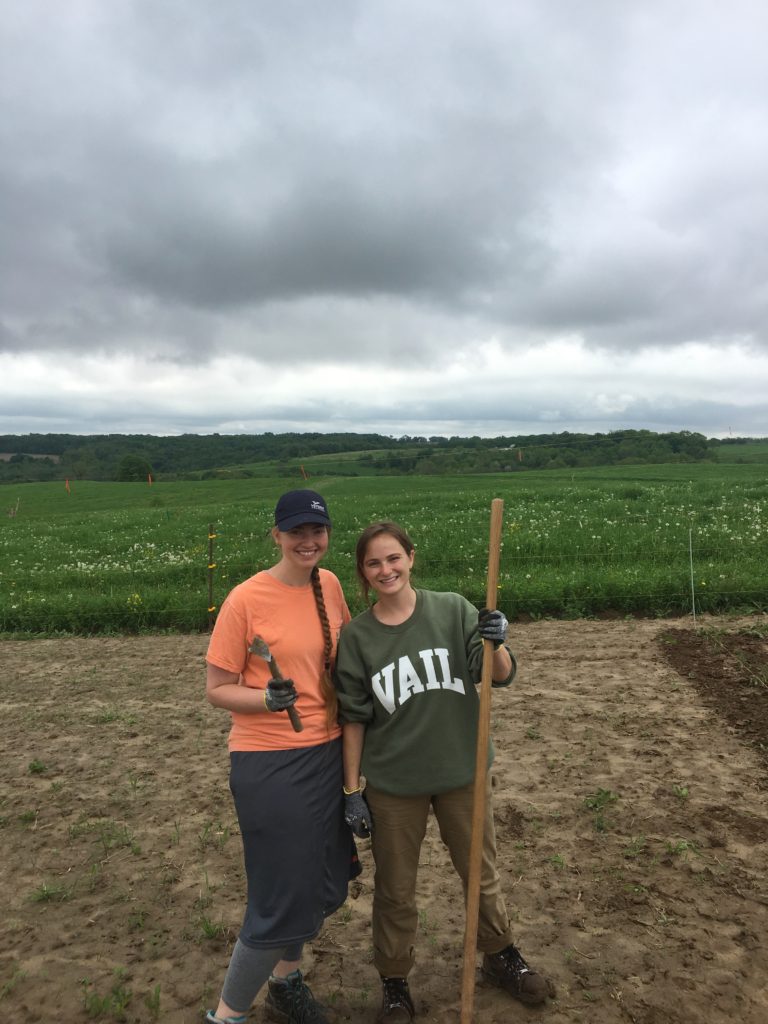Awwwwwwwmonds.
Today we spent the day at Seed Savers Exchange in Decorah, Iowa. Seed Savers is a nonprofit that was started by a couple that began collecting seeds from people around the world that did not want to lose seeds that were important to their family history. They arranged an exchange system that allowed seed holders to trade with each other. The first catalog of seeds only had 29 participants, today their over 400 participants and 21,000 seeds available. They grow and sell seeds from their own farm. Which is where we worked.
When we first got there, we worked in the fields with other volunteers. We weeded four or five different beds across the farm. The tools that we used to weed were much more helpful than the tools that we got at Whiterock Conservatory (none). Seed Savers has 890 acres and only farms 25. They do this to ensure the purity of each seed but avoiding cross pollination. Between plants, they use beans and tomatoes (which self-pollinate) to stop any crossing. After we worked in the fields, we ate lunch and toured the local Co-Op. Good food and knowledgeable man giving the tour. Apparently, there are controversies around Whole Foods, I didn’t know that.
When we got back to Seed Savers, we took a tour of the visitor’s center gardens, spoke to the “seed man” in the basement, Phil Kauth. Then we spoke to Lindsay Lee who is in charge of raising the apple orchards. The seeds in the basement were the most interesting part. They were everywhere and seemed unorganized to us, but we were assured there was a system run by a computer that logged the location of each seed. Unlike Organic Valley, there is much more room for human error in their organization.

